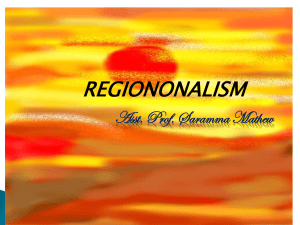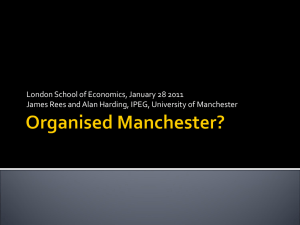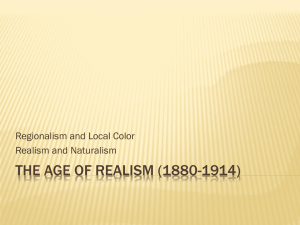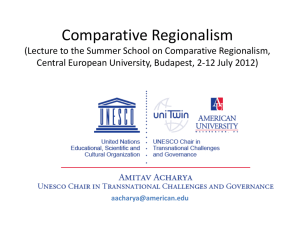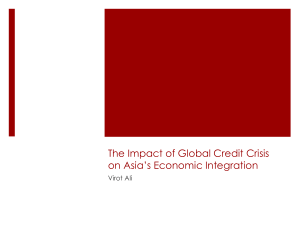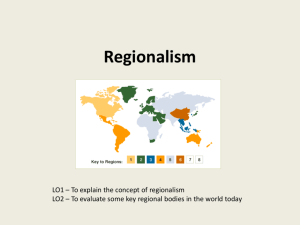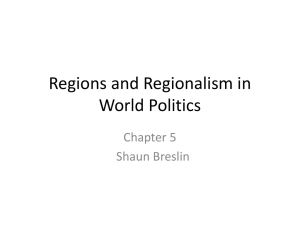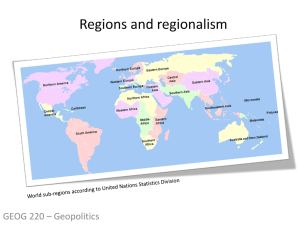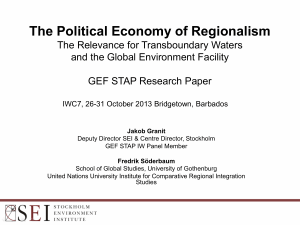Paul Collits Presentation - Regional Development Australia
advertisement
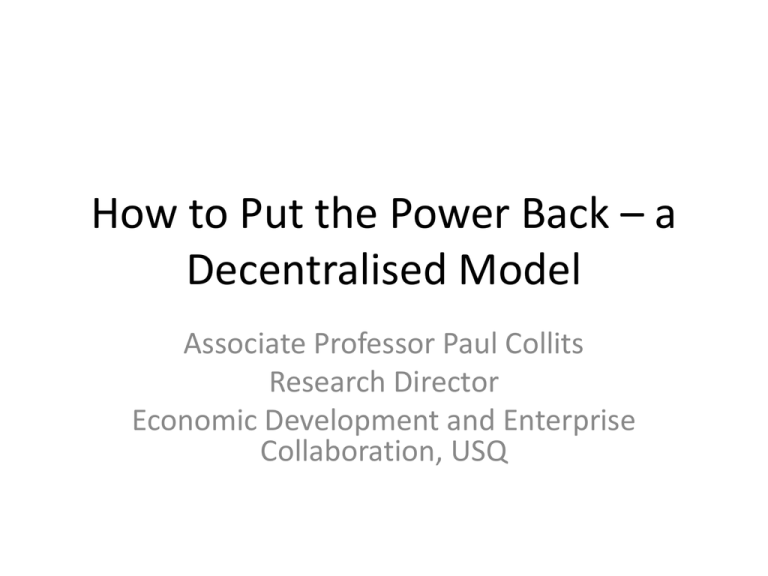
How to Put the Power Back – a Decentralised Model Associate Professor Paul Collits Research Director Economic Development and Enterprise Collaboration, USQ The Joke No need for a joke to start the presentation as regional policy in Australia is itself the joke. Some Takes on the Regional World • “In today’s world, we find that it is increasingly regions that compete – not countries” (McKinsey) • “Today we live our lives regionally” (Bruce Katz, Brookings) • “It is a tricky business to define a region” (Dore and Woodhill) • Regions are simply “generalisations of the human mind” (Walter Isard) • A region is a process... Not a thing” (Cooke and Morgan) Some Takes... • “A region, someone has wryly observed, is an area safely larger than the last one to whose problems we found no solution” (Jane Jacobs) • Regionalism is “part of an insidious agenda to end the nation state”, “wasteful, offensive and ultimately sinister” (A British Observer) • “Is localism the new regionalism?” (Ward and Hardy) • Regionalism is the new black in the USA (see Drabenstott) • Declaration: I remain a new regionalism sceptic Three Types of Regional Governance • • • • • There are three things happening with regional governance The regional coordination of central government policies Regional development Regional planning All have limitations - involve many layers of interventions and activity, multiple and complex processes, often uncoordinated and under-resourced governance and poor evaluation of interventions • There is a regional governance deficit • Too little OR too much regional governance? The Barriers to Regionalism • The familiar refrains in Australia – centralism; no regional government; not in the Constitution; no statutory basis to regional organisations; no local taxing powers – hence no mandate • Other problems – regional Australia is obsessed with, well, regional Australia, not with regions • Regional collaboration remains an unnatural act between nonconsenting adults • Fragile, possibly false, consensus over regional scale • Regions are largely top down constructs in Australia • Fragmented, messy arrangements • Silos matter – few incentives to own joint projects • So... Putting the power back is not simple and centralisation is not the only problem Overcoming the Barriers – Broad Scenarios • • • • • 3 options Business as usual Process improvement Process re-engineering But... Is it a process problem? And who takes responsibility? • Must government drive it? What about civic entrepreneurship? • Urgent need to define “reach” • Are spatial constructs like regions themselves clunky and outdated? eg by the new mobility? Overcoming the Barriers – A Decentralised Model • • • • • • • • • • • • Abolish RDAs and start again? Let regions define regions Don’t be hung up on new regionalist memes Make the case that ‘regions’ are where it is at Look at the old and new UK models Address the lack-of-mandate issue Governments to commit to genuine localism/regionalism, not localism/regionalism-lite Reward collaboration Resource new bodies (which could be old RDAs) Let new bodies decide on AND fund regional priorities Remove oversight from Ministers – a regions commission? Resource research on drivers and models of collaboration – a project for RUN?? Or RAI??
